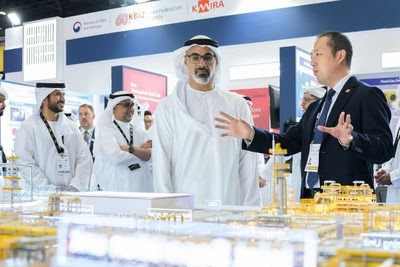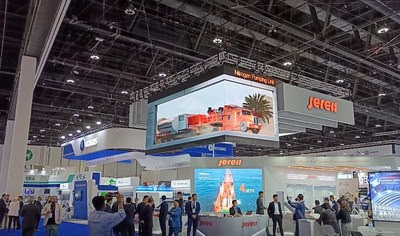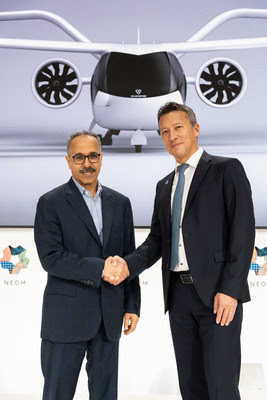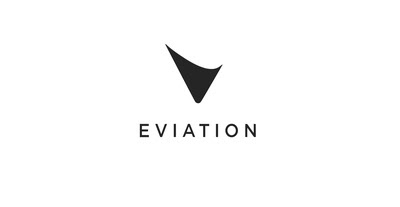The Russian Federation’s invasion of Ukraine has driven the fastest, largest displacement witnessed in decades, with some 14 million people forced from their homes since 24 February, Filippo Grandi, United Nations High Commissioner for Refugees, told the Security Council today. Although humanitarian organizations have scaled up their response, much more must be done — first is ending the senseless war, he said.
The Office of the United Nations High Commissioner for Refugees’ (UNHCR) focus is increasingly on helping displaced people in Ukraine, while trying to be present wherever there is forced displacement, he emphasized. Notwithstanding the European Union’s open, well-managed and shared response, UNHCR is maintaining a high level of preparedness for further population movements, both inside and outside Ukraine, given the likely protracted nature of the military situation.
“In the past 12 months alone, UNHCR has responded to 37 emergencies around the world. Yet, the other crises are failing to capture the same international attention, outrage, resources and action,” he emphasized. Detailing the situation of displaced persons across the globe, from Myanmar’s Rohingya refugees to Afghan and Syrian refugees, and those displaced in the Democratic Republic of the Congo and Somalia, he voiced concern that crisis and protracted situations are not only fading from media attention, but are being failed by global inaction.
The confluence of climate change and conflict has created very protracted displacement, he underscored, urging greater international and support for inclusion and integration both in refugee contexts and situations of internal displacement. Responses to climate change must consider both its link to conflict, and the displacement it causes, he stressed, voicing hope that they will be in clear focus at the upcoming twenty-seventh and twenty-eighth Conferences of the Parties to the United Nations Framework Convention on Climate Change.
The international community, starting with Council members, must overcome divisions at the very least on humanitarian issues, he stressed. Voicing alarm at the major funding gap in 2022, he pointed out that food aid for refugees has been cut in many operations. He urged strengthening the capacity of the police, judiciary and local Government and overall rule of law in fragile countries. Humanitarians must be able to operate everywhere lives must be saved, he stressed.
In the ensuing discussion, Council members, united in their concern about the increase in refugees and protracted conflict, highlighted the ways in which they are supporting UNHCR and persons displaced from different parts of the world. Several delegates urged equal treatment for all seeking refuge, while others called for greater funding for UNHCR and unimpeded humanitarian access.
Ireland’s representative, on that point, stressed that there can be no impunity for those who target humanitarian actors or who seek to use starvation as a weapon of war. As carve-outs are an important principle for any sanctions regime, he said Ireland, together with the United States, has put forward a proposal to mainstream humanitarian carve-outs across all sanctions regimes.
Mexico’s representative, spotlighting refugees’ other critical needs, called on UNHCR to systematically include mental‑health services and psychosocial support in its regional and national responses. His country is the third largest receiver of new claims for refugee status, he said, noting that 72 per cent of these claims have received a positive response. He expressed hope that the Global Refugee Forum in 2023 will generate comprehensive solutions to guarantee the rights of all refugees and internally displaced people.
Kenya’s representative expressed grave concern about the worrying trend in recent years of people of African descent travelling to Europe via the Mediterranean, who suffer extreme human rights violations, with thousands losing their lives. They must be treated humanely and given opportunities to make a decent living, he stressed, calling for the international community’s renewed commitment to assist countries in tackling the root causes of displacement.
The representative of the Russian Federation pointed to the “irresponsible policies of Western States” as the cause of conflicts, poverty and economic inequality that have forced populations out of their countries of origin. The Ukrainian crisis has intensified because of the unwillingness of authorities encouraged by Western patrons to not implement the Minsk agreements, he said.
China’s representative, noting that 83 per cent of refugees are supported by developing countries, called on the international community to mobilize resources and strengthen cooperation to ensure refugees are protected. The Council must assume its primary responsibility of promoting political settlements and fostering a peaceful environment, through support for post-conflict rebuilding and creating favourable conditions for refugees to return, he said.
Also speaking today were representatives of the United States, France, Brazil, Gabon, Albania, United Arab Emirates, India, Norway, United Kingdom and Ghana.
The meeting began at 10:04 a.m. and ended at 12:14 p.m.
Briefing
FILIPPO GRANDI, United Nations High Commissioner for Refugees, thanked Ghana, which holds this month’s Security Council presidency, for its commitment to refugee protection, inclusion and solutions. He asked Council members to look at the multiplicity of global challenges — growing conflicts, climate emergency, pandemics, energy and food crises — through the eyes of the more than 103 million refugees and displaced people, who are among the most impacted by all of them. He noted that, in so doing, they will feel with desperate urgency the need for the international community to cooperate to reverse the current trajectory and find solutions, while regrettably also observe the 15-member organ’s failure to do so. The Russian Federation’s invasion of Ukraine has driven the fastest, largest displacement witnessed in decades, he underscored, noting that some 14 million people have been forced from their homes since 24 February. Ukrainians are about to face one of the world’s harshest winters in extremely difficult circumstances. Humanitarian organizations have dramatically scaled up their response, but much more must be done, starting with an end to the senseless war, he said.
The Office of the United Nations High Commissioner for Refugees’ (UNHCR) focus is increasingly on helping displaced people in Ukraine, working under the Government’s able leadership, he said, pointing out that among the neighbouring countries, the Republic of Moldova continues to need special attention, given its vulnerability. Meanwhile in the European Union, he said UNHCR has seen an open, well managed and above all shared refugee response that has proven wrong many of the statements frequently repeated by some politicians: that Europe is full; that relocation is impossible; that there is no public support for refugees. Given the likely protracted nature of the military situation, UNHCR is maintaining a high level of preparedness for further population movements, both inside and outside Ukraine, considering different possible scenarios and the scope and limitations of humanitarian assistance. “In the past 12 months alone, UNHCR has responded to 37 emergencies around the world. Yet, the other crises are failing to capture the same international attention, outrage, resources and action,” he said.
UNHCR is trying to be present wherever there is forced displacement, such as in Ethiopia where more than 850,000 were displaced in the first half of 2022, he continued. He called on the Council to urge a positive outcome of talks between the parties in South Africa, warning that failure in peace talks would undoubtedly bring more death, destruction and displacement, and further restrict UNCHR’s already limited ability to reach those in need, in Tigray and other regions. UNHCR is also in Myanmar, where an estimated 500,000 people were also displaced in the first six months of 2022, with humanitarian access remaining a huge challenge. Conditions for the return of almost a million Rohingya refugees in Bangladesh, where options for them are limited, remain a very distant possibility, he added. In the Democratic Republic of the Congo, brutal attacks, including revolting accounts of sexual violence against women, has added more than 200,000 people to the 5.5 million already displaced in the country.
These crises, and many more, including the countless protracted situations like those of Afghan and Syrian refugees, and some of the multiple, complex population flows in the Americas, are not only fading from media attention but are being failed by global inaction, he stressed. The intersection of climate change and displacement, in many situations, includes a clear connection with conflict as well, he pointed out, underscoring that climate change is ravaging resources that have sustained communities for generations. This creates tensions, often of an intercommunal nature, especially in already fragile contexts where Governments do not have the assets or even control of territory to support adaptation and resilience strategies and programmes, he added, voicing concern that without greater attention and much greater financing for prevention, adaptation, and development and governance support, tensions, frustrations and competition will grow and spark wider conflict, with deadly consequences, including displacement.
He recalled his meeting last week in Somalia with emaciated men, women and children who had walked for days to get help, including mothers whose children had died en route. They were people who had outlived conflict just to have their last remaining coping mechanisms — their crops and their cattle — die before their eyes, he said. There, and elsewhere, conflict is also an obstacle to relief, as humanitarians are often prevented from helping people in their places of origin by insecurity and fighting. He also met with Somali refugees pushed into already drought-affected areas of Kenya, he said, highlighting that country’s generations’ long extraordinary hospitality to refugees and its landmark shift from encampment of refugees to inclusion. The confluence of climate change and conflict has created very protracted displacement, he underscored, urging greater international and support for inclusion and integration both in refugee contexts and situations of internal displacement. He voiced concern about the many hotspots affected by that spiral, especially throughout the Sahel, where the convergence of climate change, poverty, and weak governance with the action of armed groups, and the often-brutal reaction of Governments, have already displaced 3 million people, including increasingly to coastal States like Ghana, as well as to North Africa and Europe. Responses to climate change must consider both its link to conflict, and the displacement it causes, he stressed, voicing hope that they will be in clear focus at the upcoming twenty-seventh and twenty-eighth Conference of Parties to the United Nations Framework Convention on Climate Change.
UNHCR has stepped up legal support to States; upped its operational response for those displaced by climate and conflict, like in the Horn of Africa, the Sahel or Mozambique; increased efforts to reduce the environmental damage caused by massive displacement, such as in Niger or Bangladesh; and used artificial intelligence and predictive analytics to try and at least prepare for displacement of this nature. Underscoring key areas for support, he called for greater resources for humanitarian aid, which is under enormous pressure. UNHCR, despite a record level of income, including $1 billion from private donors, faces a major funding gap in 2022 in some of its crucial operations. Food aid for refugees, for example, has been cut in many operations for lack of funding despite the help of the United States and other Council members, at a time where food insecurity is growing, he said, stressing the crucial importance of the continuation of the Black Sea Grain Initiative. Peacebuilding must be seriously strengthened by reinforcing the capacity of the police, the judiciary, local government and overall rule of law in fragile countries. In addition, humanitarian action must be better safeguarded, from different viewpoints, he said, stressing that parties to conflicts must protect humanitarian work and enable access those in need. Furthermore, everyone must uphold international humanitarian law and contribute to preserving the civilian character of refugee settings. “No matter how polarized the context, humanitarians must be able to operate everywhere lives must be saved,” he stressed, welcoming the Council’s current efforts to ensure greater predictability in humanitarian carve-outs.
“We need the international community, starting with you, members of the Security Council, to overcome your divisions and disagreements at least when you discuss humanitarian issues; and hopefully when you address the root causes that are displacing people around the world,” he urged. Those that have contributed the least to global challenges are suffering most from their consequences, he stressed.
Statements
MICHAEL KIBOINO (Kenya) expressed deep concern about the continued increase in refugees due to protracted armed conflict, economic crises and climate change impacts, noting that 83 per cent of refugees globally are hosted by developing countries, with the least developed providing asylum to 7 million people — representing a 27 per cent of the global total of refugees. Host countries, particularly developing ones, shoulder the largest responsibility of the global refugee crisis, despite formidable challenges. Many of these challenges are experienced by his own country, he continued, noting that the High Commissioner had witnessed first-hand the situation of refugees in Kenya, in Kakuma and Dadaab camps, as well as witnessed how the ravages of drought in Somalia are leading to a devastating double tragedy of displacement, first by conflict, and then by extreme weather events. Kenya will continue to uphold its obligations to host and protect refugees and will continue to advocate for continued burden and responsibility sharing in line with the global compact on refugees. He went on to call for sufficient funding to enable UNHCR and other humanitarian agencies, pointing out that the international community has consistently underfunded appeals made by developing countries and the Refugee Agency. Further, wealthiest countries with high-employment economies should do more to resettle refugees, beyond providing support to UNHCR. He expressed grave concern about the worrying trend in recent years of people of African descent travelling to Europe via the Mediterranean, who suffer extreme violations of their human rights, with thousands losing their lives, and called for them to be treated humanely and given opportunities to make a decent living. He went on to call for the root causes of displacement to be comprehensively tackled, including through renewed political commitment from the international community to assist source countries.
LINDA THOMAS-GREENFIELD (United States) expressed hope that Council members will support a proposal that her country and Ireland have put on the table to create a standardized humanitarian carve-out for those under sanctioned regimes. She shared that her Government has launched “Uniting for Ukraine”, a process for Ukrainians to seek humanitarian parole in her country, providing refuge for over 190,000 people so far. Recalling that the drought in Somalia has displaced nearly 1 million people in 2022, she reported that her country provided over $850 million this year as part of its efforts to address the situation in the Horn of Africa, while calling on others to follow suit. Expressing alarm over reports that refugees returning to Syria have faced torture, arbitrary detention and forced disappearance, she urged the Council to “put politics aside” and extend the cross-border aid mandate in January. Also touching on the situations in Ethiopia, Kenya and Venezuela, she commended UNHCR’s new initiative which emphasizes the need of innovative approaches, especially new digital tools for enhancing community feedback.
NICOLAS DE RIVIÈRE (France) noting the “sad record” of 100 million displaced persons across the globe in 2022, pointed to multiple causes, from climate change to food insecurity. Saluting the remarkable courage and dedication of all personnel at the Refugee Agency, he noted that the Russian Federation’s aggression has resulted in the largest population displacement in the world since the Second World War. His country has pledged to provide humanitarian aid and is welcoming Ukrainian refugees, he said, adding that France has also doubled voluntary contributions to UNHCR since 2021, making the country the Refugee Agency’s eighth largest donor. Further, France will co-sponsor the next Global Refugee Forum at the end of 2023. Stressing that his country will not compromise on the fundamental principles regarding return of refugees, he called on Damascus to remove all obstacles preventing the return of Syrian refugees.
JOÃO GENÉSIO DE ALMEIDA FILHO (Brazil) stated that his country has granted protection through its humanitarian visa policy to people affected by the conflicts in Afghanistan and Ukraine, along with Haitians and Syrians. He added that since 2018, over 770,000 Venezuelan migrants, refugees and asylum-seekers have received assistance from its “Operation Welcome”. Noting the reports of unintended consequences of United Nations sanctions on humanitarian assistance, he encouraged the Council to continue its work to adjust the sanctions framework, so that they effectively minimize the suffering of civilians. While acknowledging that sanctions can be legitimate and effective when they are multilaterally created, strategically targeted and designed to have minimal impact on the civilian population, he pointed out that they will have unintended consequences, but that the humanitarian space must always be preserved.
MARTIN GALLAGHER (Ireland), noting the Russian Federation’s war against Ukraine, said his country has welcomed and given shelter to tens of thousands of Ukrainians. Underscoring the indisputable link between climate change and displacement, he said that for the Council to fully understand conflict drivers and consequences, it has the responsibility to understand the impact of climate on security. Greater humanitarian aid is needed for the Horn of Africa, he stressed, calling on the Council to redouble its attention to instability, conflict and the pursuit of peace. Those blocking aid delivery must cease and facilitate immediate unhindered humanitarian access, he said, stressing that there can be no impunity for those who target humanitarian actors or who seek to use starvation as a weapon of war. Turning to the situation in Haiti, he said Haitians who are seeking refuge must not be turned away or sent back. Carve-outs are an important principle for any sanctions regime, he pointed out, noting that Ireland, together with the United States, has put forward a proposal to mainstream humanitarian carve-outs across all sanctions regimes. The Council has the responsibility to use tools available when required, but they must be effective and without unintended consequences for humanitarian efforts. Moreover, it must hear directly from refugees and displaced people — those bearing the brunt of Council inaction and inadequacy, he said. Ireland’s funding for UNCHR continues to grow with core funding at its highest level ever, he said, affirming ongoing support for the High Commissioner and the Refugee Agency.
MICHEL XAVIER BIANG (Gabon), citing figures from UNHCR, noted that since 2021 the world has seen 42 new emergency situations in 30 countries, forcing displacement, adding that the war in Ukraine has displaced millions of people in that country and around Europe. Further, climate change is worsening the situation, spurring forced displacement, particularly in the Sahel and Horn of Africa, which is only set to worsen in the future, he said, adding: “However, the international community is not doing enough to share the cost of protecting those seeking asylum.” The current financing does not make it possible to respond to the myriad challenges, including food insecurity, epidemics, the safety of women, particularly in refugee camps, and providing access to education for the youngest. He called for true cooperation for equitable burden sharing. While hailing Ukraine’s neighbours for their solidarity in hosting most claimants fleeing the war, he regretted the policies of many to deter asylum-seekers, which are short-sighted and force women, men and children to put their lives in danger, while benefiting smugglers trafficking in human beings. “The Mediterranean Sea is an immense cemetery of shame, which is the final resting place for unknown numbers of indigent Africans and young people who only sought to improve their fortunes,” he stressed, calling for greater international support on a political, security, financial and humanitarian level, adding that such support “must not vary according to geography”. The right to asylum is the most symbolic of human rights, and refusing to receive asylum-seekers or discriminating against them is a violation of human rights.
GENNADY V. KUZMIN (Russian Federation), noting that conflicts, poverty and economic inequality continue to force populations out of their countries of origin, stressed that this is due to the “irresponsible policies of Western States” which have imposed their dictate and carried out geopolitical experiments in weaker countries. Describing the situations in African States, Libya, Syria and Afghanistan as “hotbeds of mass migration”, he particularly called on UNHCR to continue supporting the voluntary return of Syrian refugees to their homelands. Asserting that the Ukrainian crisis has intensified because of the unwillingness of the authorities encouraged by Western patrons to not implement the Minsk agreement, he shared that his country is making every effort to accommodate refugees, providing them with assistance in employment, education and health care. He pointed out that UNHCR staff based in Moscow have made regularly visits to temporary accommodation centres for internally displaced persons in various regions and have noted the effectiveness of their work.
ALBANA DAUTLLARI (Albania), noting that the war in Ukraine has affected more than 40 million people, said it has taken emergency response to new heights. Responding to such crises should be in “in addition to” and not “instead of” other crises, she said, adding that the international community must not forget the millions of people displaced worldwide, from Myanmar to Burkina Faso to Ethiopia to Yemen and elsewhere. The Council must continue searching for solutions by supporting countries of origin and host countries, and by ensuring that people can rebuild their lives if they make the choice to return. “It’s important to be united in giving the right signals,” she said, adding that the Council must overcome divisions. Commending the efforts of UNHCR in meeting the increasing protection needs, she also applauded refugee-hosting countries worldwide that welcome millions and continue to demonstrate solidarity.
AMEIRAH ALHEFEITI (United Arab Emirates), voicing concern about the numerous challenging and complex humanitarian situations around the world, including Afghanistan, Myanmar and Ukraine, said her country continues to provide humanitarian assistance worldwide, including in support of Syrian and Rohingya refugees, as well as to internally displaced persons in Ethiopia. Addressing the root causes and contributing factors of forced displacement must remain the Council’s number one approach to prevent its occurrence in the first place, she underscored. To end conflicts peacefully, political solutions, dialogue and support for de-escalation must remain the building blocks of its efforts. That approach is also more efficient and cost-effective, as it ensures that the most vulnerable can remain in their homes in secure conditions, she pointed out. Recalling the RewirED Summit in 2021 in her country, she said finding new ways to provide education to those forcibly displaced can mitigate the risk of leaving them behind and build their capacities to contribute to their futures. To that end, her country has sought to invest in innovative education tools, including the ‘Digital School’ launched in 2022 to train educators and provide distance learning for children, including youth in refugee camps, including in Africa, the Middle East and Latin America. Noting that climate change is and will continue to increase forced displacement at an alarming rate, she stressed that effective mitigation and adaptation strategies are necessary to lessen the impact of climate change on forced displacement.
GENG SHUANG (China) expressed concern about the severe lack of funding against the backdrop of growing humanitarian needs, noting that the number of forcibly displaced persons exceeded 100 million in 2022, hitting a “record high”, adding: “The fact that the UNHCR has had to lower its relief standards is of great concern.” Noting that 83 per cent of refugees are supported by developing countries, he called on the international community to mobilize resources and strengthen cooperation to ensure refugees are protected. Such protection should be non-political, and the credibility of refugee status must be safeguarded. The Security Council must assume its primary responsibility of promoting political settlements and fostering a peaceful environment, through enhanced cooperation with the Peacebuilding Commission, and support for post-conflict rebuilding, alleviating refugees’ plight and creating favourable conditions for refugees to return. Turning to Ukraine, he commended its neighbours, who host millions of displaced Ukrainians, and called on the international community to increase support to help bring about a political solution. On Palestine, he expressed concern about the millions of Palestinians who have been displaced, their homes occupied and their rights trampled on, calling on the international community to provide adequate funding for the United Nations Relief and Works Agency for Palestine Refugees in the Near East (UNRWA), and to promote a just and lasting solution to the Palestine question. On Syria, he pointed out that the 7 million refugees hosted by neighbouring countries are “the bitter fruit of military intervention”, and called on the international community to introspect to avoid the recurrence of such tragedies. Turning to Afghanistan, where 11 million people had been displaced, millions to Pakistan and Iran alone, he called for the maintenance of a constructive engagement towards peaceful rebuilding and the return of refugees, adding that the issue of frozen overseas assets should be addressed to help Afghans out of their plight. On the Rohingya, he noted that Myanmar and Bangladesh are moving towards initial repatriation efforts towards the end of 2022, and called on the international community to lend greater support to UNHCR.
RAVINDRA RAGUTTAHALLI (India), noting that the concerned States have the primary responsibility to protect and assist internally displaced persons, stressed that international action must remain within the bounds of the concept of sovereignty and should only be at the request of the country concerned. Pointing to the need to focus on preventing people from being forced to leave their homelands, he underscored that preventing armed conflicts, countering terrorism and building and sustaining peace through facilitating sustainable development and good governance remain critical. Highlighting that Member States and UNHCR must avoid politicization of the humanitarian work, he encouraged the Refugee Agency to continue to help build, strengthen and use national capacities for protection and humanitarian action. Recalling that humanitarian aid has become more important due to the global economic slowdown, he called upon Member States to provide indiscriminate and equitable services to refugees and take them into due account in national response strategies.
JUAN RAMÓN DE LA FUENTE RAMÍREZ (Mexico) stated that violence, poverty, lack of opportunities, political instability and climate change all contribute to more people being forced to leave their homes, as is the case in Ukraine, Ethiopia, Democratic Republic of the Congo, South Sudan and Somalia. Noting that the measures imposed in Afghanistan restricting the rights of women and girls also affect their decision to move to other regions or to leave the country, he stressed the importance of acknowledging that females are disproportionately affected by the various factors leading to displacement. He called on UNHCR to systematically include mental health services and psychosocial support in its regional and national responses. Sharing that his country is the third largest receiver of new claims for refugee status, he pointed out that 72 per cent of the claims have received a positive response. He expressed hope that the Global Refugee Forum to be held in 2023 will be a good opportunity to analyse comprehensive solutions based on recently acquired experiences to guarantee the rights of all refugees and internally displaced people.
MONA JUUL (Norway) expressed concern about the high number of children being forcibly displaced amid the increasing number of armed conflicts around the world, noting that many of them are alone and at high risk of recruitment to armed groups. She went on to outline several negative trends that must be reversed, including warfare in urban areas, which is killing and injuring civilians, destroying homes, schools and hospitals, and depriving people of access to basic services and means of survival, adding that the Russian Federation’s war against Ukraine is “a horrifying example of this”. Such challenges are compounded by climate change, environmental degradation and rising food insecurity, both as a consequence and a driver of conflict, leading to further displacement, as seen in Sahel, the Horn of Africa and elsewhere. She called for stronger political will to address root causes and prevent conflict and displacement, and for the Secretary-General’s mediation efforts to be supported. Further, parties to conflict must protect civilians and reduce the risks that drive displacement, and comply with refugee law and human rights. She stressed the need for protection to be at the core of the humanitarian response. Further, durable solutions must be sought to benefit both the displaced and their host communities. Norway supports the global compact on refugees and welcomes the Secretary-General’s Action Agenda on internal displacement and the appointment of a Special Adviser. She called on the global community to show greater solidarity through broader burden- and responsibility-sharing, and for more countries to be engaged, along with international financial institutions and the private sector. Flexible, unearmarked funding is key to meet changing and growing needs, she added.
JAMES KARIUKI (United Kingdom), commending the efforts of UNHCR, echoed “others’ horror at President Putin’s latest atrocities”, and noted that the crisis in Ukraine is but one example of the need to address the drivers of displacement. From Ethiopia to Syria to Myanmar, the international community owes it to the millions of refugees and displaced to find practical solutions to prolonged crises. Also calling on the Council to continue to ensure that actors on the ground meet their responsibilities to international humanitarian law, he added that this means ensuring that refugee returns are voluntary, safe and dignified, and allowing humanitarians to safely carry out their work unhindered. His country is taking lifesaving action, he said, highlighting its International Development Strategy and the plan to contribute over $3 billion to global humanitarian needs over the next three years.
HAROLD ADLAI AGYEMAN (Ghana), Council President for November, speaking in his national capacity, expressed concern about the continuous rise in global refugee numbers, which stood at 100 million individuals in May 2022. Noting that the war in Ukraine has been a key driver, he added that in many parts of continental Africa, the situation remains dire with more than 26 per cent of the world’s refugees hosted in the region. In Somalia, the number of people displaced internally by drought in 2022 alone is nearing 1 million, in addition to those displaced due to conflict and insecurity. Highlighting the 1951 Convention Relating to the Status of Refugees and its 1967 protocol, he encouraged Member States to implement those agreements as well as the global compact for refugees, adopted in 2018. The increasing rate of refugees on his continent requires deeper cooperation between the United Nations and regional arrangements, he said, highlighting continental initiatives such as the African Union Convention for the Protection and Assistance of Internally Displaced Persons in Africa which came into force in 2012.
Mr. GRANDI, responding to questions and comments, thanked delegations who had expressed support for UNHCR, its partners and staff, and affirmed the Refugee Agency’s continued work despite the challenges it faces. He said he mentioned climate change to highlight the complexity of movement and urge that those factors be considered in current discussions on the climate emergency, including at the twenty-seventh and twenty-eighth Conference of the Parties. The Council’s work is closely linked to that of UNCHR, he said, noting that the agency “picks up the pieces” when the 15-member organ does not manage to arrive at political solutions. The best way to assist UNHCR is by continuing to work on political solutions, he emphasized. Recalling his symbolic visit to Cote d’Ivoire on 23 June — World Refugee Day — he highlighted that 90 per cent of the country’s refugees had gone back after years of civil war. When positive political action happens, then solutions to displacement occur, he underscored. All people fleeing armed conflict, discrimination or persecution are equal and must be treated equally. However, there is inequality in the way victims of the worst situations are treated, he said, affirming that UNCHR will continue to remind all to uphold that principle. On the Ukrainian refugee crisis, he cited the Canadian ambassador who, at the Third Committee’s meeting on 1 November, underscored that the way Ukrainian refugees have been treated should not be the exception but the norm on which to build a model on hosting refugees.
Further on supporting UNHCR, humanitarian agencies and non-governmental organizations, he said it is also important to ensure that there is no backtracking in development assistance. Without simultaneously building resilience, refugees’ immunity to shocks and hardships will continue the spiral of humanitarian assistance that is unsustainable in the long-term. UNCHR is “spread very thin”, he stressed, pointing that this is the first year in his seven years as High Commissioner that he shares the funding gap with alarm, warning of potential cuts in cash assistance to host countries. Underscoring that humanitarian access is particularly difficult in “theatres of conflict”, he called for urgent and successful peace talks for the resumption of aid delivery. He voiced support for the carve-out initiative led by Ireland and the United States, stressing UNCHR’s need for clarity and flexibility to operate in difficult political circumstances. Having to negotiate too much with whoever controls a territory becomes cumbersome, he pointed out. As such, the Council’s help in that regard would be invaluable and urgent. On mental health, he said that the UNHCR Executive Committee’s resolution recognizes mental health as a very important part of the agency’s humanitarian response given the traumatic nature of conflict.
He agreed with the need to step up efforts in Somalia, stressing the importance of collective responsibility in that regard. Voicing concern about the humanitarian situation inside Syria, he agreed that more early recovery efforts are needed, assuring the delegations of the Russian Federation and others that UNCHR will continue to talk constructively with the Government of Syria to remove obstacles that prevent people from returning. Turning to Haiti, he said he would appeal in the next few days to States receiving Haitians to not return them to the country given the extremely fragile and worrying situation. UNHCR will continue to work wherever Ukrainian refugees are present, he said, noting his forthcoming meeting with a Ukrainian refugee community in Japan. The Refugee Agency is also working with the Russian Federation in respect of Ukrainian refugees present in its territory, he said, noting UNCHR’s small operation in the country. Voicing support for China’s recommendations, he stressed the importance of creating conditions for the return of Rohingya refugees and cooperation between Bangladesh and Myanmar. Although important, dialogue alone will not guarantee their return, he pointed out, stressing that discrimination and other such concerns must be lifted for people to return. He echoed calls for support of UNWRA, noting the importance of that agency’s work with Palestinian refugees.
Recalling the important “toolbox” approved by the General Assembly four years ago, he said those tools are available to Council members and other countries to improve the response to the refugee and displacement crisis. Looking ahead, he said the Global Refugee Forum will be held again at the end of 2023, voicing hope that Member States will invest and participate in that meeting.
Source: United Nations
 أبو ظبي، الإمارات العربية المتحدة، 2 نونبر/تشرين الثاني، 2022 / PRNewswire / — تقدم Jereh من خلال مجموعة واسعة من التطبيقات الجديدة، أحدث تقنيات وحلول الشركة في صناعات النفط والغاز لمتخصصي الطاقة في ADIPEC 2022 ، الحدث الأكبر والأكثر أهمية وتأثيراً في صناعة الطاقة العالمية.
أبو ظبي، الإمارات العربية المتحدة، 2 نونبر/تشرين الثاني، 2022 / PRNewswire / — تقدم Jereh من خلال مجموعة واسعة من التطبيقات الجديدة، أحدث تقنيات وحلول الشركة في صناعات النفط والغاز لمتخصصي الطاقة في ADIPEC 2022 ، الحدث الأكبر والأكثر أهمية وتأثيراً في صناعة الطاقة العالمية.


 bin_Mohamed_bin_Zayed_Al_
bin_Mohamed_bin_Zayed_Al_

 وبوصفها مركزاً للابتكار، ستستقطب نيوم روّاد وقادة الأعمال والشركات من جميع أنحاء العالم للبحث في التقنيات والمشاريع الجديدة واحتضانها وتسويقها بأساليب مبتكرة. وسيجسّد سكان نيوم قيماً تمثل روح الجماعة، كما سيعتمدون ثقافة تتبنى الاستكشاف والمغامرة والتنوع.
وبوصفها مركزاً للابتكار، ستستقطب نيوم روّاد وقادة الأعمال والشركات من جميع أنحاء العالم للبحث في التقنيات والمشاريع الجديدة واحتضانها وتسويقها بأساليب مبتكرة. وسيجسّد سكان نيوم قيماً تمثل روح الجماعة، كما سيعتمدون ثقافة تتبنى الاستكشاف والمغامرة والتنوع.




